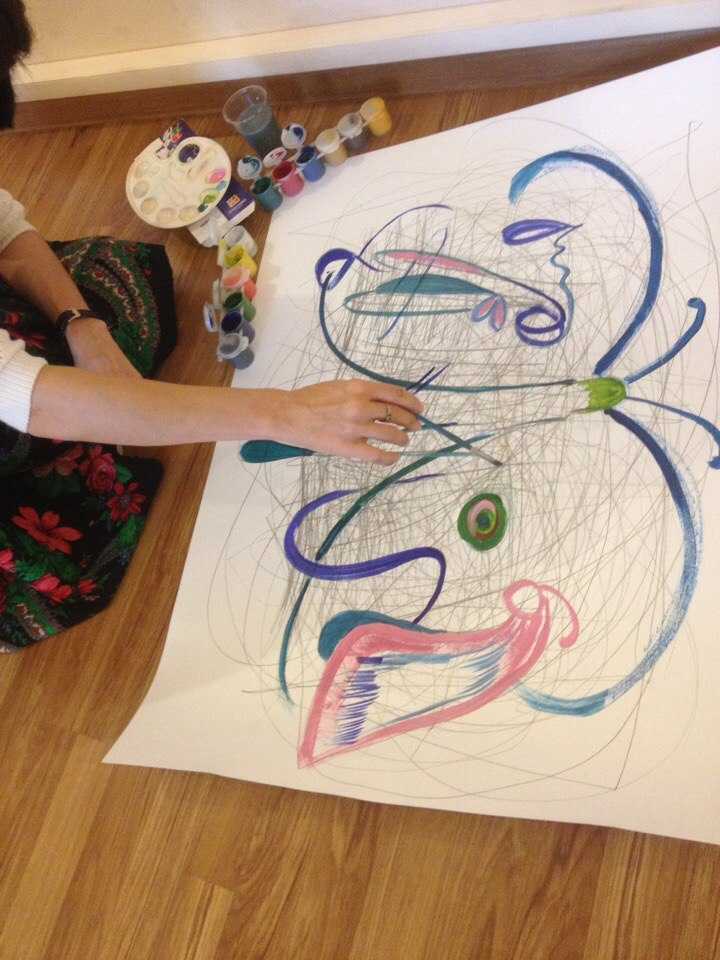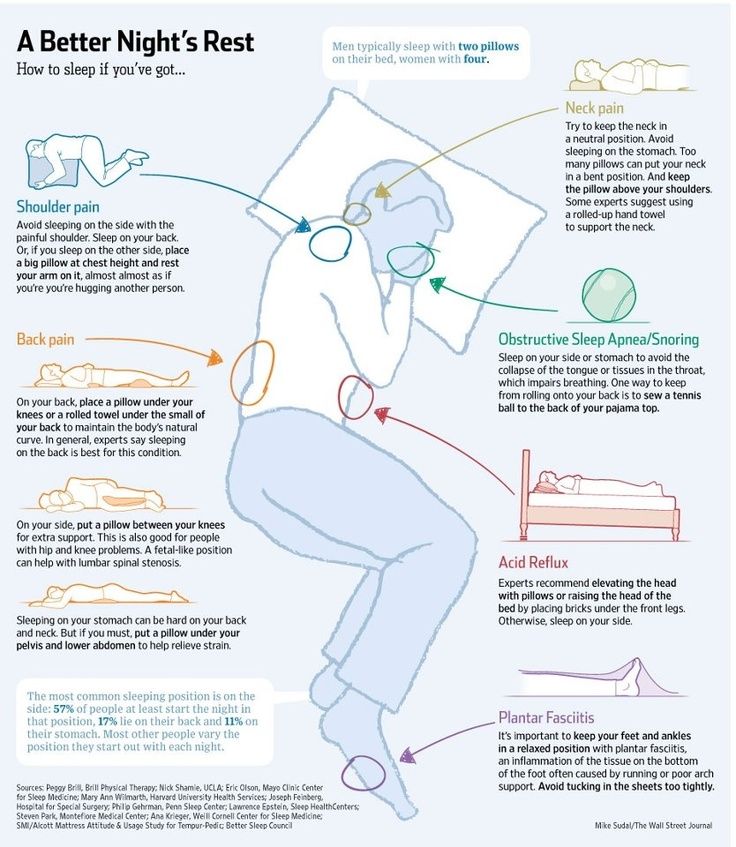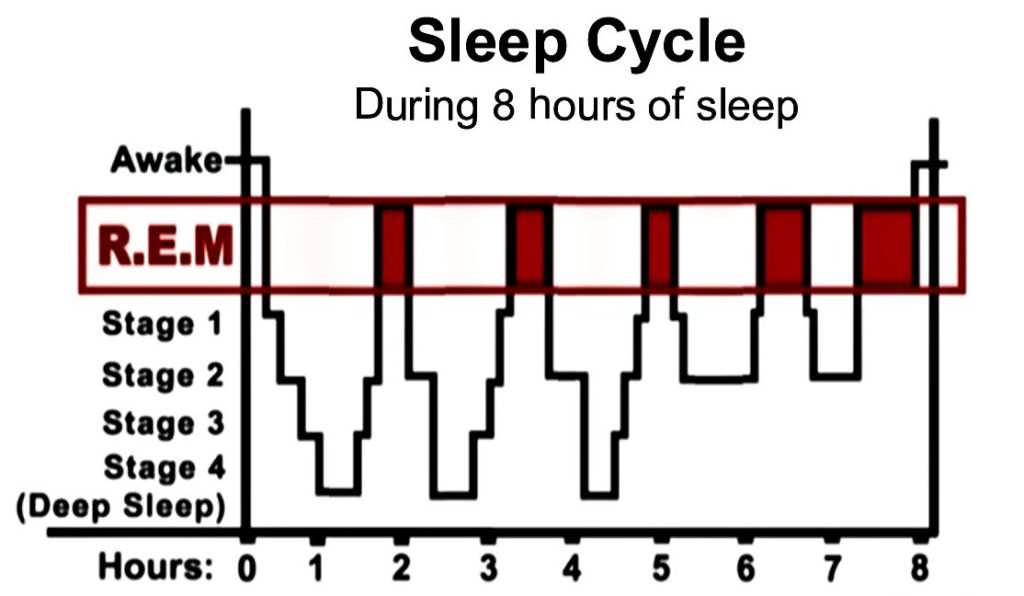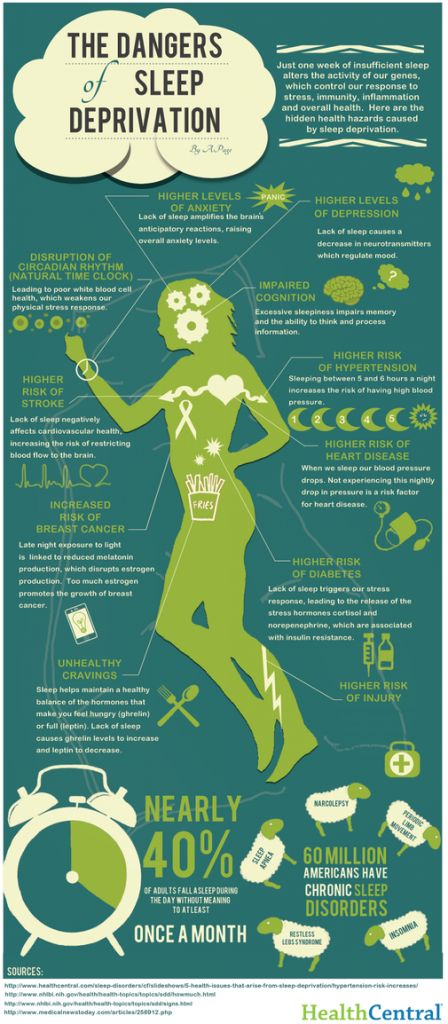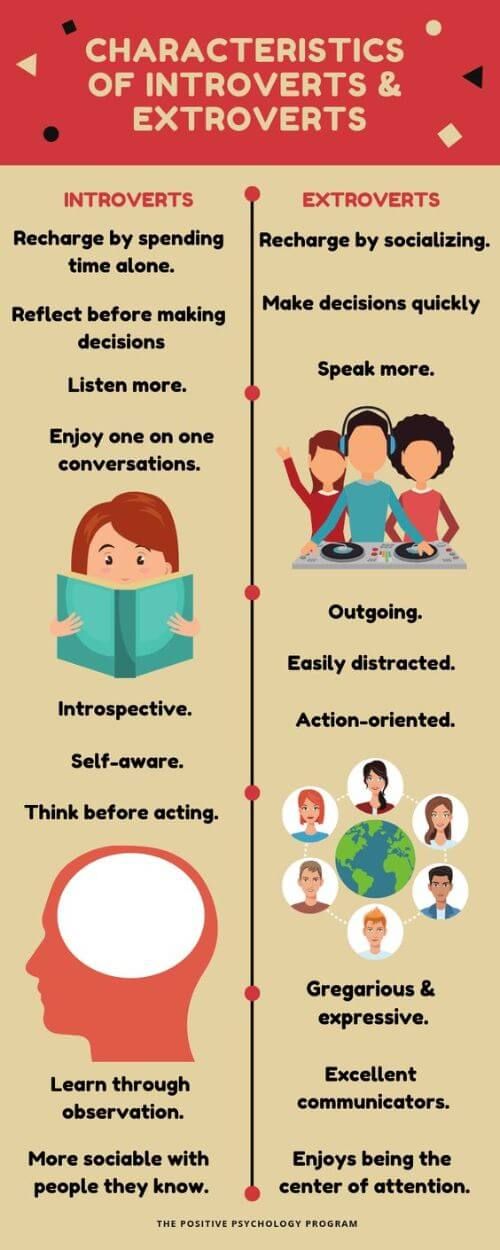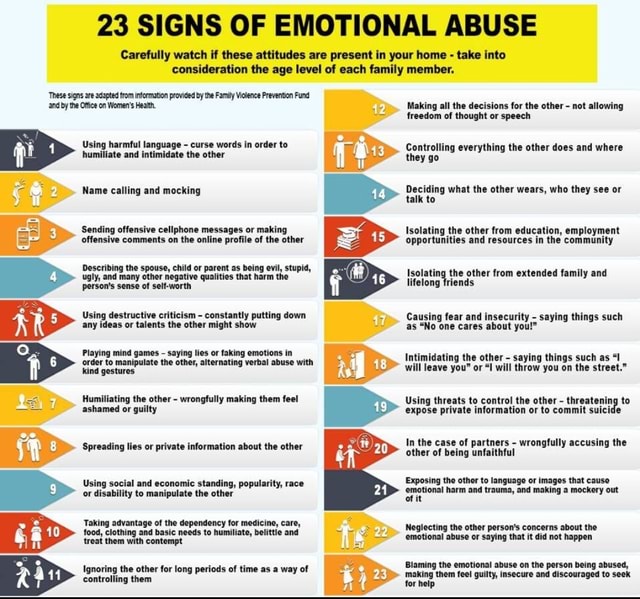Can a relationship survive physical abuse
Why People Stay in an Abusive Relationship
Abusive relationships are extremely complex situations and it takes a lot of courage to leave. Abuse is about power and control. When a survivor leaves their abusive relationship, they threaten the power and control their partner has established over the survivor’s agency, which may cause the partner to retaliate in harmful ways.
As a result, leaving is often the most dangerous period of time for survivors of abuse.
Fear
A person will likely be afraid of the consequences if they decide to leave their relationship, either out of fear of their partner’s actions or concern over their own ability to be independent.
Normalized abuse
If someone grew up in an environment where abuse was common, they may not know what healthy relationships look like. As a result, they may not recognize that their partner’s behaviors are unhealthy or abusive.
Shame
It can be difficult for someone to admit that they’ve been or are being abused. They may feel that they’ve done something wrong, that they deserve the abuse, or that experiencing abuse is a sign of weakness. Remember that blame-shifting is a common tactic that their partner may use and can reinforce a sense of responsibility for their partner’s abusive behaviors.
Intimidation
A survivor may be intimidated into staying in a relationship by verbal or physical threats, or threats to spread information, including secrets or confidential details (i.e. revenge porn etc). For LGBTQ+ people who haven’t come out yet, threats to out someone may be an opportunity for abusive partners to exert control.
Low self-esteem
After experiencing verbal abuse or blame for physical abuse, it can be easy for survivors to believe those sentiments and believe that they’re at fault for their partner’s abusive behaviors.
Lack of resources
Survivors may be financially dependent on their abusive partner or have previously been denied opportunities to work, a place to sleep on their own, language assistance, or a network to turn to during moments of crisis.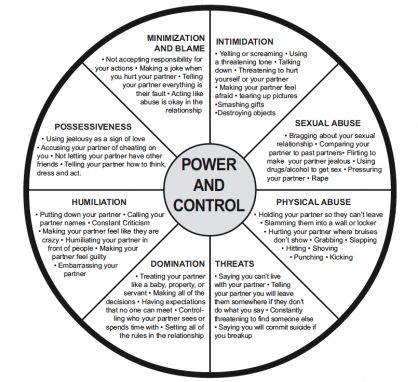 These factors can make it seem impossible for someone to leave an abusive situation.
These factors can make it seem impossible for someone to leave an abusive situation.
Disability
If someone depends on other people for physical support, they may feel that their well-being is directly tied to their relationship; a lack of visible alternatives for support can heavily influence someone’s decision to stay in an abusive relationship if they have a disability.
Immigration status
People who are undocumented may fear that reporting abuse will affect their immigration status. If they have limited English proficiency, these concerns can be amplified by a confusing and convoluted legal system and an inability to express their circumstances to others.
Cultural context
Traditional customs or beliefs may influence someone’s decision to stay in an abusive situation, whether held by the survivor or by their family and community. Learn more about abuse in different cultural contexts.
Children
Many survivors may feel guilty or responsible for disrupting their familial unit.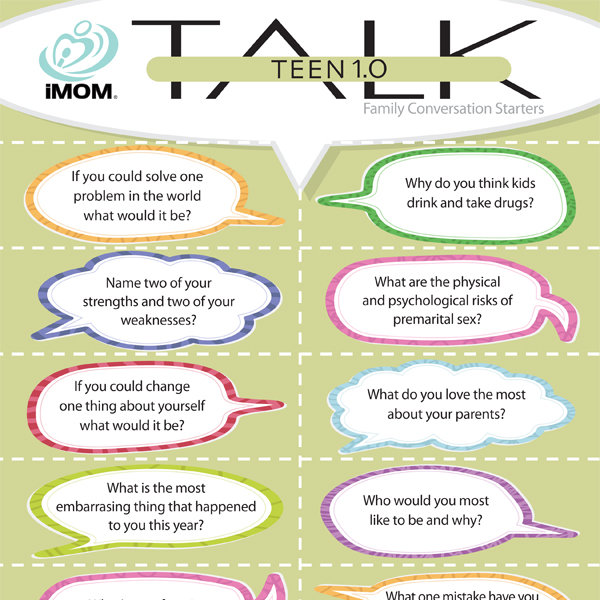 Keeping the family together may not only be something that a survivor may value, but may also be used as a tactic by their partner used to guilt a survivor into staying.
Keeping the family together may not only be something that a survivor may value, but may also be used as a tactic by their partner used to guilt a survivor into staying.
Love
Experiencing abuse and feeling genuine care for a partner who is causing harm are not mutually exclusive. Survivors often still have strong, intimate feelings for their abusive partner. They may have children together, want to maintain their family, or the person abusing them may simply be charming (especially at the beginning of a relationship) and the survivor may hope that their partner will return to being that person.
No matter the reason, leaving any relationship can be difficult; doing so in an abusive situation can feel impossible without the right access to support.
a quote mark iconUnderstanding the various ways that abuse appears and intersects can prepare you to respond to situations safely for yourself and others.
Can a Relationship Be Saved After Domestic Violence?
In This Article
People who are in an abusive relationship may find themselves asking can a relationship be saved after domestic violence.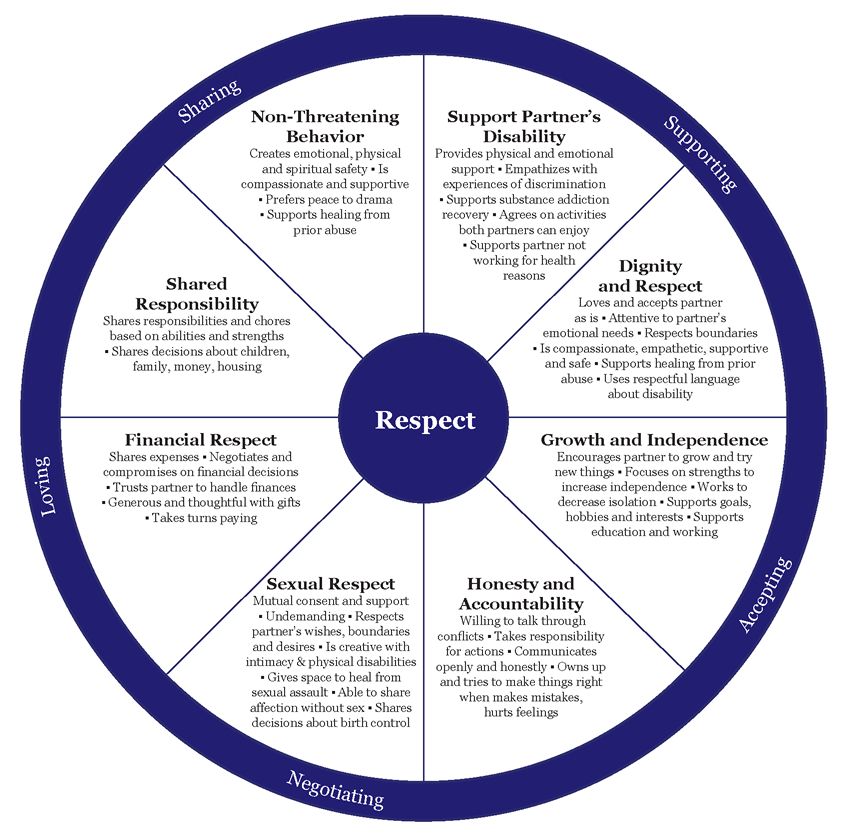 Victims may hang on to the relationship hoping the abuser will change, only to be continually disappointed when violence happens again.
Victims may hang on to the relationship hoping the abuser will change, only to be continually disappointed when violence happens again.
Knowing the answer to can domestic abuser’s change can help you to decide whether you should stay in the relationship or move on and seek a healthier partnership.
Why is domestic violence such a big deal?Before knowing can a relationship be saved after domestic violence, it is vital to go to the core of the issue.
Domestic violence is a big deal because it is widespread and has significant consequences. According to research, 1 in 4 women and 1 in 7 men are victims of physical abuse at the hands of an intimate partner during their lives.
While physical abuse is probably what comes to mind most often when thinking about domestic violence, there are other forms of abuse in intimate relationships, including sexual abuse, emotional abuse, economic abuse, and stalking.
All of this abuse can have serious negative consequences.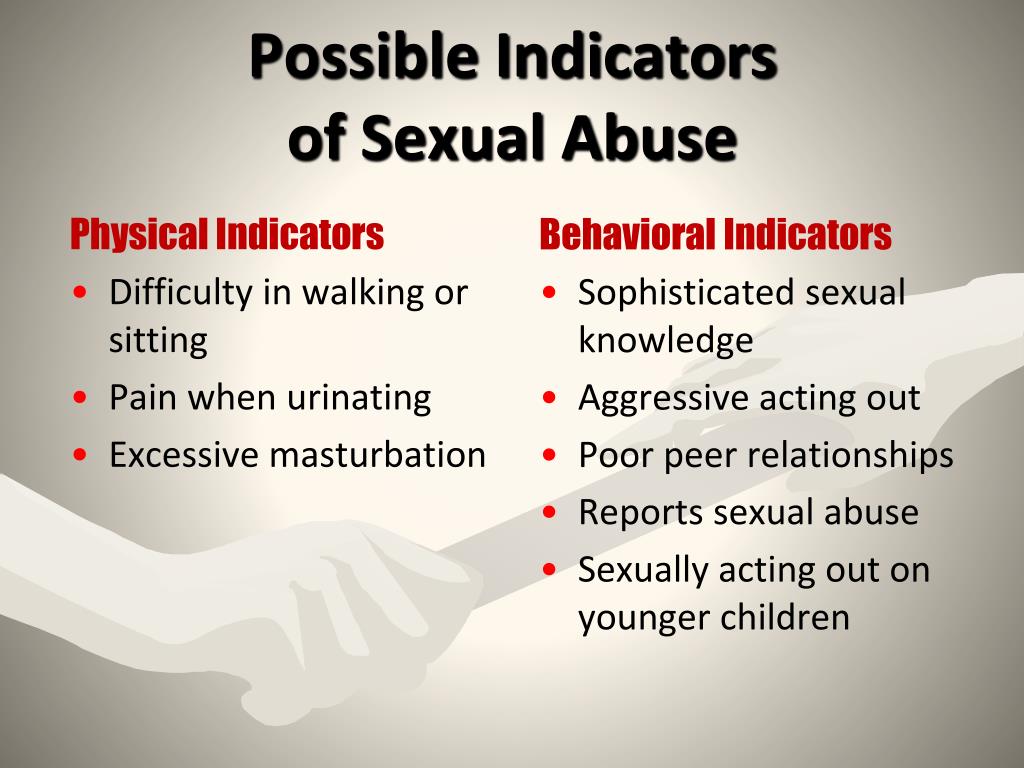
The research shows that children who witness domestic violence suffer from emotional damage, and they may also be victims of violence themselves. When they grow up, people who witnessed domestic violence as children are more likely to be victims of domestic violence themselves; they also struggle to form healthy relationships.
Adult victims of domestic violence also suffer from a variety of consequences, according to experts:
- Job loss
- Psychological problems, such as post-traumatic stress disorder or eating disorders
- Sleep problems
- Chronic pain
- Gastrointestinal problems
- Low self-esteem
- Isolation from friends and family
Given the numerous negative outcomes for both victims and their children, domestic violence is certainly a significant problem and the question can a relationship be saved after domestic violence requires an answer, a solution!
Related Reading: What is domestic violenceReasons domestic violence victims may leave
Since domestic violence can have devastating consequences, it is no surprise why victims may want to leave.
- Victims may leave the relationship in order to overcome the psychological trauma of being in a domestic violence situation.
- They may desire to find happiness in life again, and not continue in a relationship where they have low-self-esteem or are cut off from friends.
- In some cases, a victim may leave simply for safety. Perhaps the abuser has threatened her life, or the abuse has gotten so severe that the victim is suffering from physical injuries.
- A victim may also leave to ensure the safety of their children and to prevent them from being exposed to further violence.
Ultimately, a victim will leave when the pain of staying is stronger than the pain of ending the abusive relationship.
Related Reading: What is Physical AbuseReasons a victim may reconcile after domestic violence
Just as there are reasons to leave an abusive relationship, some victims may choose to stay or choose reconciliation after domestic violence because they believe there’s a solution to the question, ‘Can a relationship be saved after domestic violence?’
Some people may actually stay in the relationship for the sake of the children because the victim might desire for the children to be raised in a home with both parents.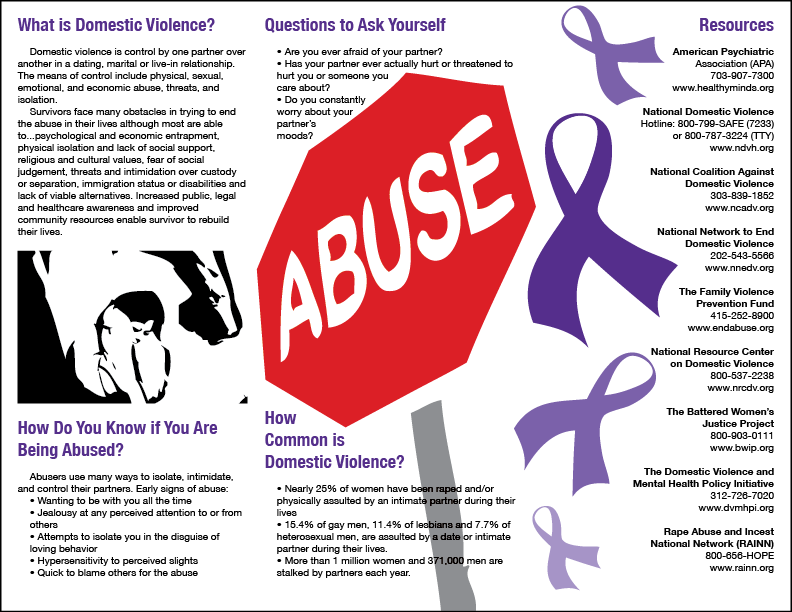
Other reasons people may stay in an abusive relationship or choose reconciliation after domestic violence include:
- Fear of how the abuser will react if they leave
- Apprehension over living life on their own
- Normalization of the abuse, due to witnessing abuse as a child (the victim does not recognize the relationship as unhealthy)
- Feeling ashamed of admitting the relationship was abusive
- The abuser may intimidate the partner into staying or reconciling, by threatening violence or blackmailing
- Lack of self-esteem, or belief the abuse was their fault
- Love for the abuser
- Dependence upon the abuser, due to disability
- Cultural factors, such as religious beliefs that frown upon divorce
- Inability to financially support themselves
In summary, a victim may stay in an abusive relationship or choose to return to the relationship after domestic violence, because the victim has nowhere else to live, relies on the abuser for financial support, or believes the abuse is normal or warranted because of the victim’s flaws.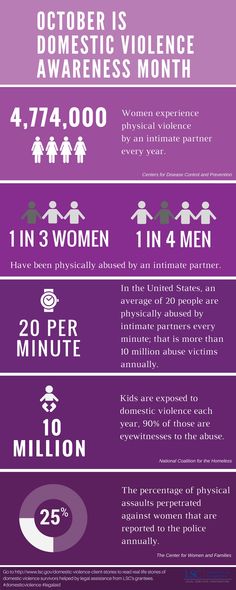
The victim may also truly love the abuser and hope he will change, for the sake of the relationship and perhaps also for the sake of the children.
Related Reading: Intimate Partner Violence
In the video below, Leslie Morgan Steiner talks about her personal episode of domestic violence and shares the steps she took to come out of the nightmare.
Can you achieve reconciliation after domestic violence?When it comes to the issue can a relationship be saved after domestic violence, experts tend to believe that domestic violence usually does not get better.
They don’t look for solutions to the concern ‘Can a relationship be saved after domestic violence’ as victims create a safety plan to leave the relationship.
Others warn that domestic violence is cyclical, meaning that it is a repeating pattern of abuse.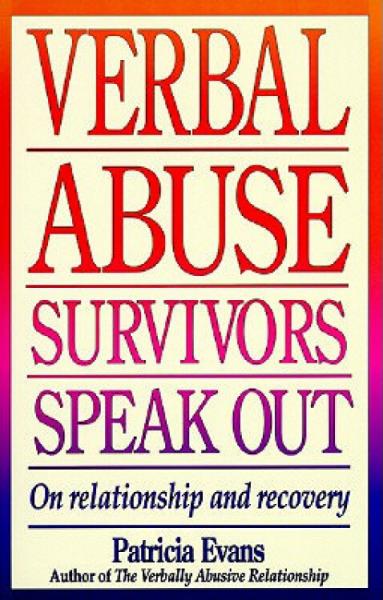 The cycle begins with a threat of harm from the abuser, followed by an abusive outburst during which the abuser physically or verbally attacks the victim.
The cycle begins with a threat of harm from the abuser, followed by an abusive outburst during which the abuser physically or verbally attacks the victim.
Afterward, the abuser will express remorse, promise to change, and perhaps even offer gifts. Despite promises of change, the next time the abuser becomes angry, the cycle repeats itself.
What this means is that if you choose reconciliation after domestic violence, your abuser may promise to change, but you may find yourself back in the same cycle of domestic violence.
While getting trapped in a cycle of domestic violence is a reality for many victims, this does not mean that staying together after domestic violence is out of the question in every situation.
For example, sometimes, domestic violence is so severe and dangerous to the victim that there is no choice but to leave. However, there are other situations in which there may be a single act of violence, and with the proper treatment and community support, the partnership can heal.
Related Reading:Ways to Prevent domestic violenceHow an abuser becomes an abuser
Domestic violence can be the result of the abuser growing up with the same pattern of violence in his own family, so he believes violent behavior is acceptable. This means that the abuser will need some sort of treatment or intervention to stop this pattern of violence in relationships.
While it requires commitment and hard work, it is possible for an abuser to get treatment and learn healthier ways of behaving in relationships. Reconciliation after abuse is possible if the abuser is willing to make changes and shows a commitment to making these changes last.
So, the question arises again, can a relationship be saved after domestic violence?
Well, staying together after domestic violence can have benefits, so long as the abuser changes. Ending a relationship abruptly after an incident of domestic violence can tear a family apart and leave children without the emotional and financial support of a second parent.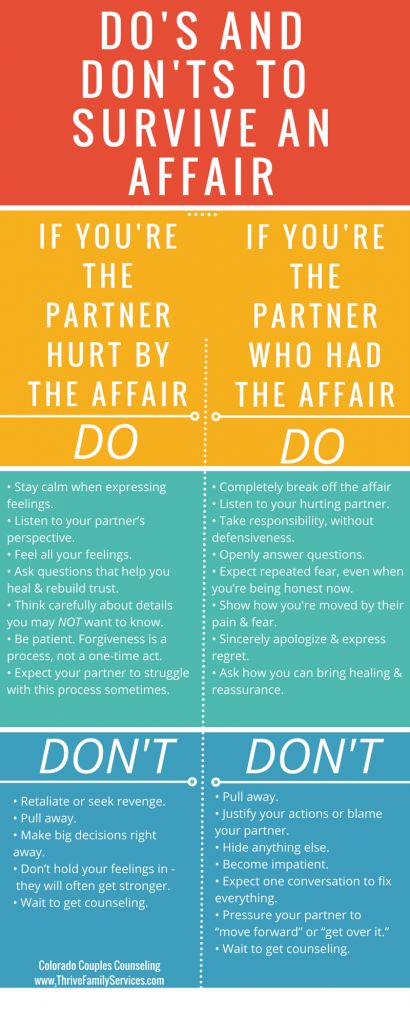
On the other hand, when you choose reconciliation after the violence, the family unit remains intact, and you avoid taking the children from their other parent or placing yourself in a situation where you struggle to pay for housing and other bills on your own.
Related Reading: How to Deal With Domestic ViolenceCan abusers ever change?
One important question when considering can a relationship survive domestic violence is Can domestic abusers change? Can a relationship be saved after domestic violence?
As previously mentioned, abusers often engage in violent behavior because they witnessed violence as children, and they are repeating the pattern. This means that a domestic abuser will need professional interventions to learn about the harmfulness of violence and discover healthier ways of interacting in intimate relationships.
The answer to can domestic abusers change is that they can, but it is difficult and requires them to commit to the work of changing. Simply promising “never to do it again” is not enough to promote lasting change.
Simply promising “never to do it again” is not enough to promote lasting change.
In order for an abuser to make lasting changes, he must identify the root causes of domestic violence and heal from them.
Distorted thoughts are a common cause of domestic violence, and getting control over these thoughts can help abusers to manage their emotions, so they do not have to act out in violence in intimate relationships.
Learning to manage emotions in this way requires professional intervention from a psychologist or counselor.
Related Reading: Can an Abusive marriage be SavedCan a relationship survive domestic violence?
A domestic abuser can change with professional intervention, but the process can be difficult and requires work. After domestic violence reconciliation requires evidence of lasting changes from the abuser.
This means that the abuser must be willing to get help to stop his violent behavior and show actual change over time.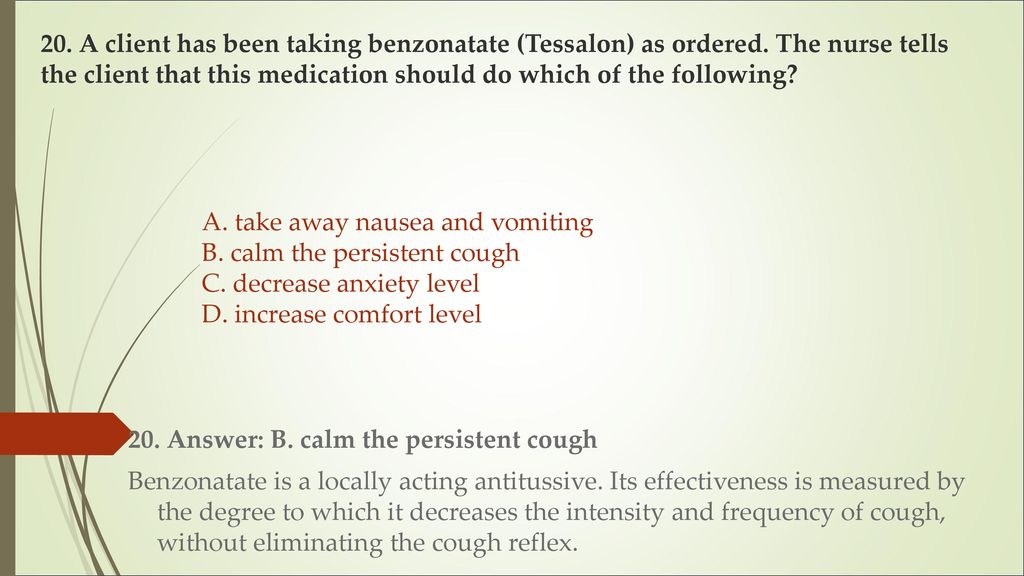
Some signs a domestic abuser has changed include:
- The abuser has fewer negative reactions to conflict, and when there is a negative reaction, it is less intense.
- Your partner evaluates his own emotions instead of blaming you when stressed.
- You and your partner are able to manage conflict in a healthy manner, without violence or verbal attacks.
- When upset, your partner is able to calm himself and behave rationally, without becoming violent or threatening abuse.
- You feel safe, respected, and as if you have the freedom to make your own decisions.
Keep in mind that you must see evidence of actual, lasting change to achieve reconciliation after domestic violence. Temporary change, followed by reverting to previous violent behaviors, is not enough to say that a relationship can survive after domestic violence.
Keep in mind that domestic violence often involves a pattern, whereby the abuser engages in violence, promises to change afterward, but returns to former violent ways.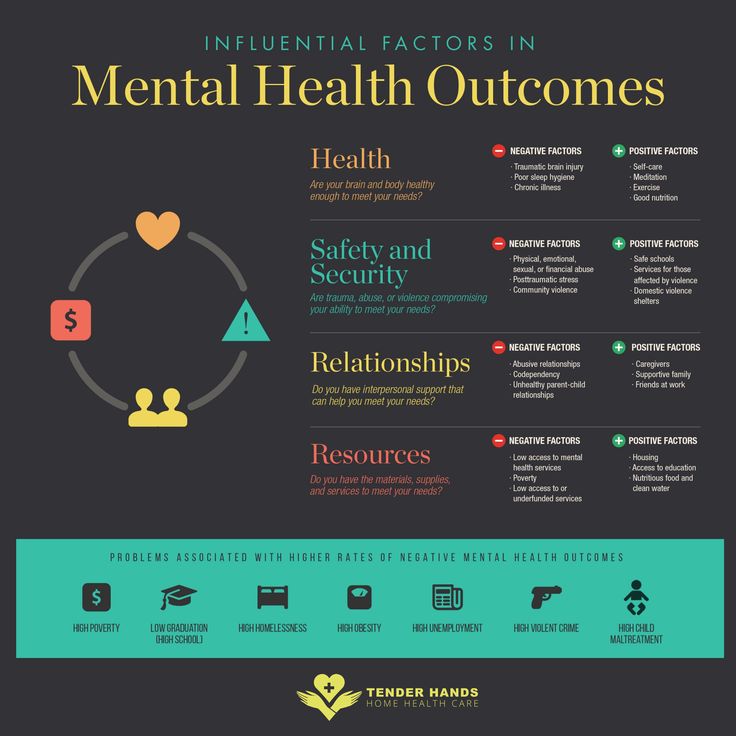
When asking yourself can an abusive marriage be saved, you must be able to evaluate whether your partner is actually making changes, or simply giving empty promises to stop the violence.
Promising to change is one thing, but promises alone will not help a person to change, even if he truly wants to. If your partner is committed to stopping the abuse, you must see that he is not only going to treatment but also implementing new behaviors learned during treatment.
In cases of after domestic violence reconciliation, actions truly do speak louder than words.
Related Reading: How to Stop Domestic ViolenceWhen staying together after domestic violence is not the right choice
There may be situations in which an abuser can change through a commitment to getting treatment and doing the hard work necessary to make lasting changes that do not involve violence.
On the other hand, there are situations where an abuser cannot or will not change, and staying together after domestic violence is not the best choice.
Many experts do warn that domestic violence abusers rarely change.
Even those who can a relationship be saved after domestic believe that change is possible to warn that it is extremely difficult and requires significant time and effort. The process of change can be painful for both the abuser and the victim, and rarely does domestic violence get better overnight.
If you are struggling with the question of can an abusive relationship be saved, it may be best to try a period of separation before making the decision of whether or not to choose reconciliation after domestic violence.
This sets a boundary between you and the abuser and can keep you safe from further abuse while both you and the abuser work on healing.
If you choose to reconcile after separation, it is best to have a zero-tolerance policy for future violence. If you find that the abuser returns to violence after domestic violence reconciliation is probably not possible.
Ultimately, remaining in an abusive situation can damage your mental health, place your children at risk of trauma and abuse, and even seriously threaten your physical safety.
So, while there may be situations when an abuser can change after getting help and putting forth the serious effort, true, lasting change is difficult. If your partner is not able to stop the abuse, you may have to end the relationship for your own safety and wellbeing.
Related Reading: Why Do People Stay in Emotionally Abusive RelationshipsConclusion
The answer to can a relationship be saved after domestic violence will be different for each relationship. While many experts warn that domestic abusers rarely change, it is possible to achieve reconciliation after domestic violence if the abuser is willing to accept professional help and make true, lasting changes to correct abusive behavior.
These changes will not occur overnight and will require serious hard work from the abuser.
Can a relationship be saved after domestic violence depends upon whether the abuser is willing to put forth the hard work to grow and change so that he can manage stress and conflict without becoming violent or verbally aggressive?
If, after a period of counseling and/or separation, the abuser continues to act out violently, it is likely that you are stuck in the same repeating cycle of domestic violence.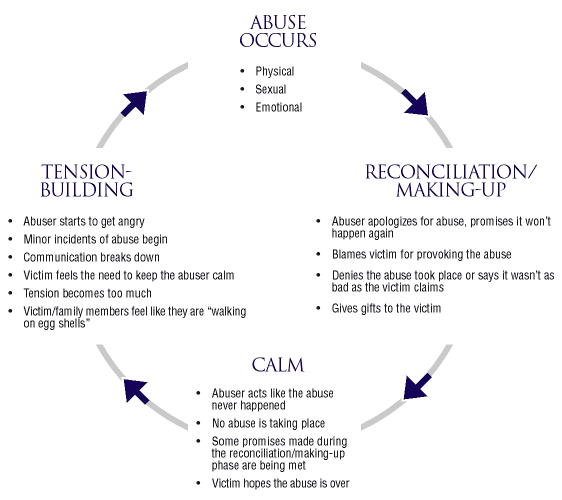
In this case, you may have to make the painful decision to end the relationship or marriage to protect your own physical and mental well being, as well as the emotional safety of your children.
Finding the answer to can a relationship be saved after domestic violence is not easy. If you are choosing whether or not to seek reconciliation after domestic violence, it is important to consult with professionals, including mental health providers and perhaps even a pastor or other religious professional.
You should carefully weigh the pros and cons of leaving vs. saving the relationship, and at the end of the day, if you cannot be safe in the relationship, you deserve to be free from the pain of emotional and physical abuse.
Psychological violence and ways of coping
Zyuzkina Anastasia Andreevna, psychologist of the health care institution "City Clinical Psychiatric Dispensary"
Often domestic violence against women and children is not perceived as an act of violence.
The topic of psychological abuse is broad, this issue is relevant not only in the field of the family system, but also in the sphere of work.
For example, in the scientific literature, psychological violence is called mobbing - the employer's disrespectful attitude towards employees in the context of labor relations. Situations where periodically (at least once a week) the employee is humiliated and harassed by the team or the manager, the purpose of which is to dismiss the employee during the period of employment. Mobbing is manifested in the oppression of a long period of time and includes negative statements, unfounded criticism, social isolation of an employee, dissemination of deliberately false information about a person, and more. nine0003
Psychological consequences for the object of mobbing are so serious that social significance is perceived as traumatic and compared with murder, rape and robbery. Some people even think about suicide.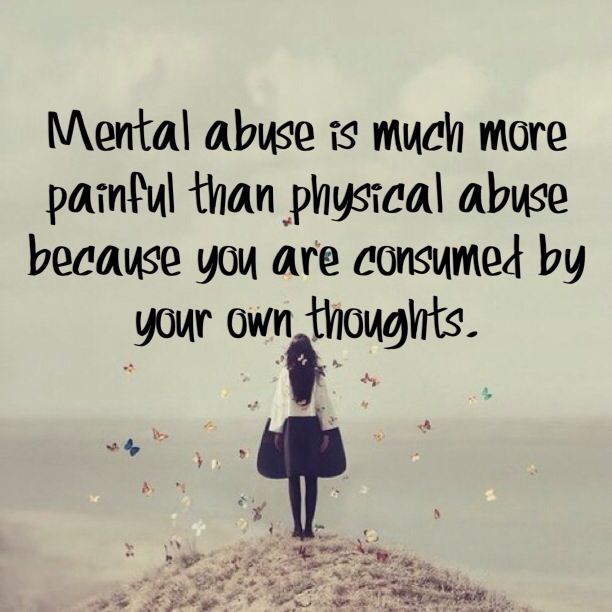
Most often, psychological abuse occurs in the family. The main victims of domestic violence are women and children. The consequences of psychological violence include sleep and appetite disorders, alcoholism, reckless committing of traumatic actions, a change in the nature of the personality. nine0003
Psychological violence is a form of influencing the emotions or psyche of a partner through threats, intimidation, insults, criticism, condemnation, etc. That is, a constant verbal negative impact on another person. More often this type of violence is subjected to wives from their husbands, much less often vice versa.
Psychological abuse can escalate into physical abuse.
Domestic violence also spreads in cohabitation as cohabitation. Most often it is a form of psychological abuse. Psychological abuse is on a par with physical abuse, since the personality is violated by suppressing self-esteem. Under such conditions, the person who is targeted by the negative impact does not assess the situation as dangerous and sometimes it is necessary to convince them that they have become precisely the victims.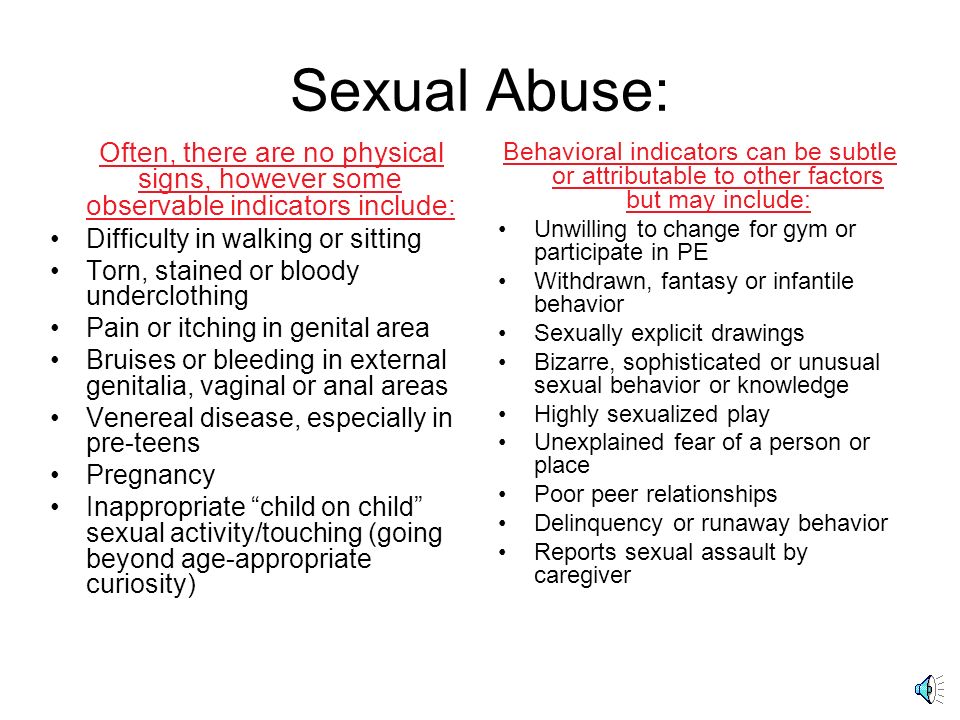 Beliefs are formed as if she herself is to blame, misunderstood, did not tolerate, did not prove, provoked. As a result, personal characteristics are formed: self-restraint, alienation, negativism, refusal to express one's own position. nine0003
Beliefs are formed as if she herself is to blame, misunderstood, did not tolerate, did not prove, provoked. As a result, personal characteristics are formed: self-restraint, alienation, negativism, refusal to express one's own position. nine0003
Insults, violence, mistreatment in psychology is called abuse. The person who forces to do something, offends, forces to perform actions that are unpleasant to another person, respectively, is an abuser.
The reasons why one partner affects the psyche of another are varied, the most common: the need for self-realization and self-affirmation at the expense of the other, difficulties in the inability to express one's desires and thoughts, past experience, financial dependence on one's partner, the perception of violence as a norm in family behavior, propaganda of violence in the media / movies / video games, psychological deviations in the form of a psychological trauma. nine0003
With constant criticism, the self-esteem of the victim decreases to a certain level and self-confidence is shaky, in this state it is easier for the tyrant to impose his opinion and desired behavior.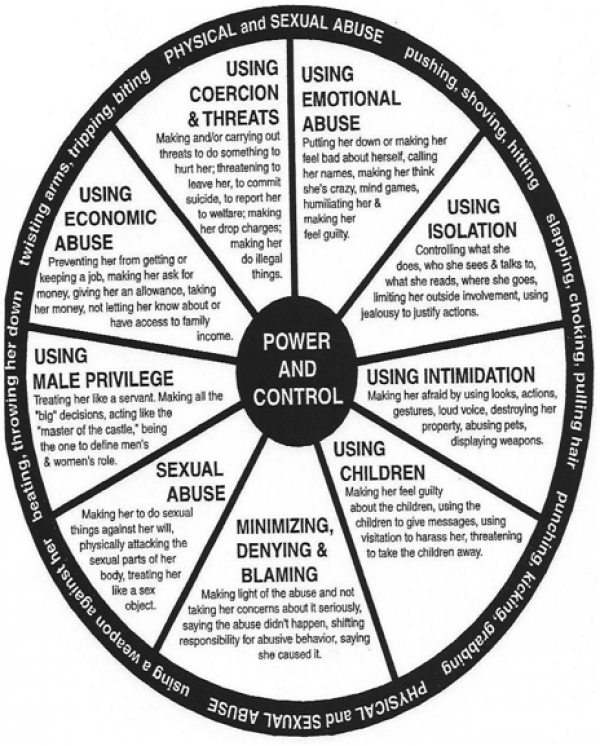 The victim in such a state of mind doubts the correctness of his actions, a feeling of insignificance and guilt is instilled. By psychologically influencing such a person, another model of life is laid, the position of a tyrant is adopted and control is exercised on his part.
The victim in such a state of mind doubts the correctness of his actions, a feeling of insignificance and guilt is instilled. By psychologically influencing such a person, another model of life is laid, the position of a tyrant is adopted and control is exercised on his part.
There are many signs of psychological violence and a combination of signs is used to determine it, and not each factor individually:
- criticism - a rough assessment of shortcomings, comments about appearance, intelligence, taste preferences, such criticism may be followed by insults.
- Humiliation - insults, rough treatment.
- Accusation - conviction of guilt, for example, in family failures and shifting responsibility for everything that happens.
- Despotism - commanding tone in communication, orders and instructions instead of requests.
- Intimidation - Threats of physical violence against the victim and their loved ones, limiting prohibitions on contact with children and threats from the tyrant to commit suicide.
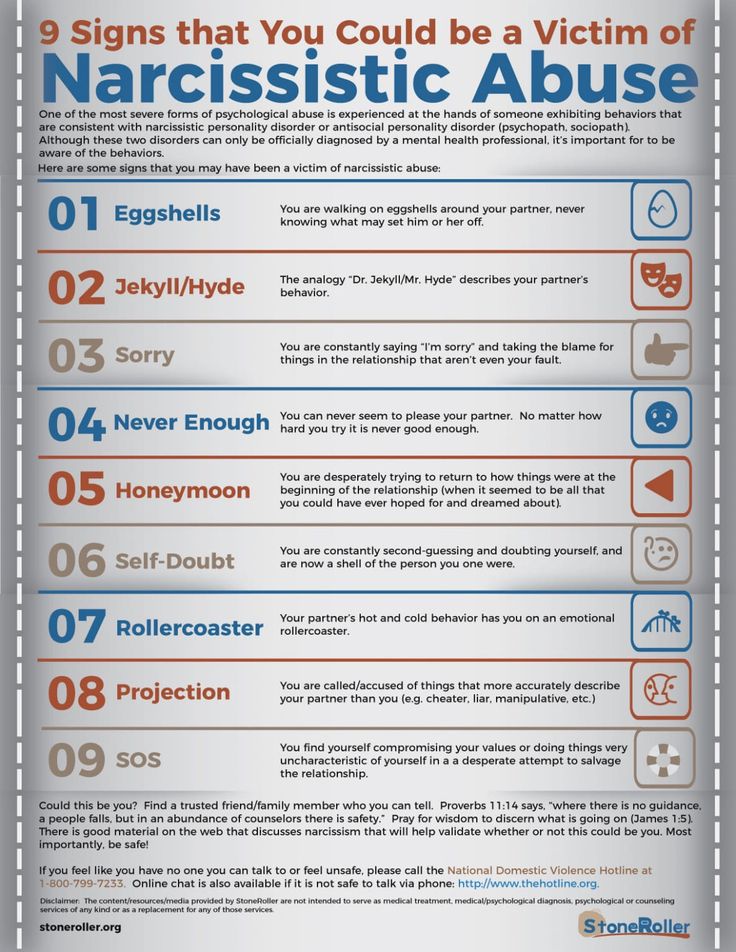 nine0038
nine0038 - Prohibition to communicate with relatives, friends, colleagues, deprivation of means of communication.
- Prohibited from visiting places outside the home and obtaining permission from a partner to leave the house.
- Permanent presence, partner rarely leaves alone.
- Monitoring behavior and communication outside the home, checking private messages, checking call lists, checking email, installing software, hidden or open surveillance (video surveillance). nine0038
Emotional abuse also includes jealousy, which manifests itself in constant accusations of adultery.
A psychological abuser has such qualities as: disrespectful attitude towards a partner and his life principles; the imposition of help that was not asked for, generosity that puts you in an awkward position; total control; jealousy; threatening behavior; the presence of double standards “I can, but you can’t”; life credo "a man (woman) is never guilty of anything.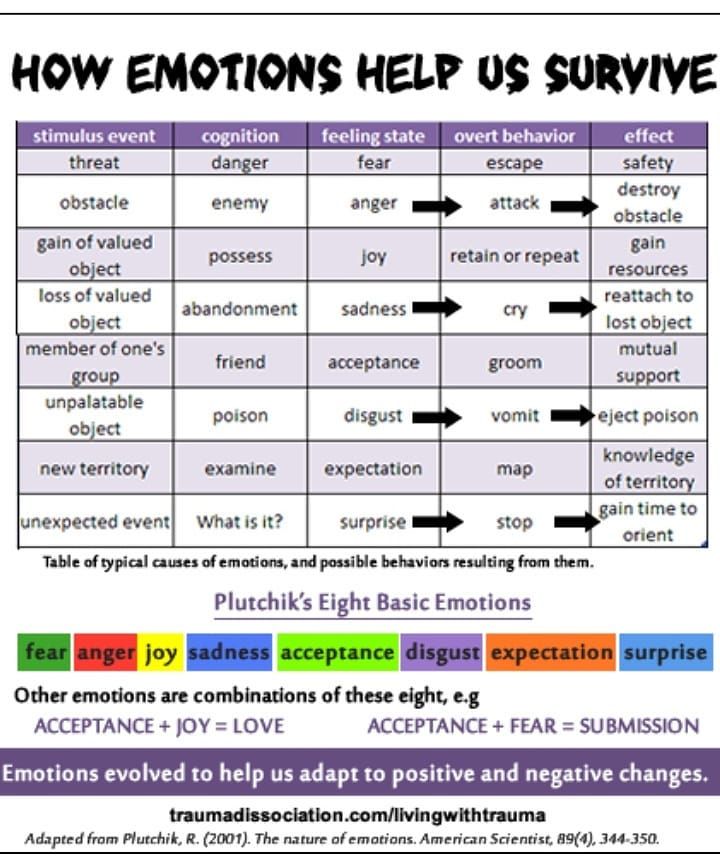 " nine0003
" nine0003
There are several types of psychological violence. Gaslighting is one of the most severe forms of psychological abuse. The gaslighter denies their partner or child adequateness using the phrases “it seemed to you”, “it didn’t happen”, “you just don’t understand it”. The victim is instilled that the perception of the environment is erroneous, therefore, the victim is convinced that she is going crazy. Neglect - ignoring any needs, arguing that a person does not need it, deliberate negligence. Sometimes the abuser pushes his partner to plastic surgery, refuses to deal with everyday life and children. In this situation, it is best to isolate yourself from the abuser. nine0009 Visholding - refusal to discuss an exciting topic. Emotional blackmail - ignoring any action of the victim, emotional coldness, silence, blackmail with personal information. The purpose of such behavior is the subordination of another person, deprivation of one's own will, and only by limiting communication can one protect himself from this.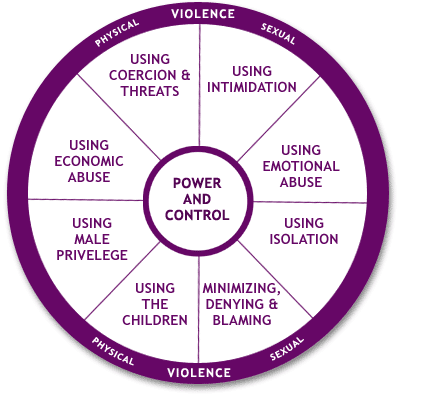 Ignoring - emotional withdrawal. Isolation - prohibition of communication with everyone except the abuser himself, so the request for help is difficult to carry out. nine0009 Control - tight control over any actions of the partner. Criticism - pointing out shortcomings and miscalculations, that in front of other people it looks like ridicule. The purpose of such behavior is to form an inferiority complex, after such an impact it is difficult to recover from such a relationship, faith in oneself, partnership is lost.
Ignoring - emotional withdrawal. Isolation - prohibition of communication with everyone except the abuser himself, so the request for help is difficult to carry out. nine0009 Control - tight control over any actions of the partner. Criticism - pointing out shortcomings and miscalculations, that in front of other people it looks like ridicule. The purpose of such behavior is to form an inferiority complex, after such an impact it is difficult to recover from such a relationship, faith in oneself, partnership is lost.
It is best for the victim to get out of the situation of violence (even run away, disappear from view). Victims of psychological abuse cannot avoid mental problems. Such people are in a state of psychological trauma and experience anxiety, fear, may become depressed, and suicidal attempts are not excluded. There is also emotional dependence, neglect of one's needs, various addictions may arise, for example, alcohol or drugs. nine0003
nine0003
According to studies, in those families where various types of violence (physical, psychological) are used, signs of a delay in the physical and neuropsychic development of children are noticed.
In each specific case of violence, a psychological consultation is required.
It is important to take responsibility for your life, set your own goals, learn to listen to yourself and your feelings, stop negative influences and report what is unpleasant, not tolerate when something causes negative feelings. nine0003
In difficult social, economic and psychological situations, you should contact crisis centers to receive the necessary assistance.
For psychological support, you can contact the helpline, where they will listen, support and determine the type of assistance.
There are no bruises, but the soul is crippled: answers to important questions about psychological abuse
Does emotional abuse necessarily lead to physical abuse? Why do victims of psychological abuse not always understand what they are facing? Why do those who find themselves in a particularly difficult situation refuse help? Is it possible to “cure” relationships that involve non-physical abuse? Dealing with a psychologist
Not so long ago, Netflix released the series Maid (aka The Cleaner: The Story of a Single Mother in Russian translation), dedicated to the problem of emotional and psychological violence in the family. According to the plot of the series, Alex (Margaret Qualley) leaves her husband, who cannot control his outbursts of anger. Alex is especially frightened by his behavior while intoxicated. The heroine finds the strength to break off these relations, but does not immediately seek help - it is difficult for her to admit and accept that she faced violence, because the aggressor did not beat her. nine0006 Co-founder and supervisor of the “NeTerpi” psychological assistance center, former psychologist of the “Nasiliyu.net” center (recognized as a foreign agent in Russia) Tatyana Orlova tells why it is difficult for a person who has found himself in a situation of emotional abuse to realize what is happening, whether the only reason for aggression is alcohol and where to turn to the victims.
According to the plot of the series, Alex (Margaret Qualley) leaves her husband, who cannot control his outbursts of anger. Alex is especially frightened by his behavior while intoxicated. The heroine finds the strength to break off these relations, but does not immediately seek help - it is difficult for her to admit and accept that she faced violence, because the aggressor did not beat her. nine0006 Co-founder and supervisor of the “NeTerpi” psychological assistance center, former psychologist of the “Nasiliyu.net” center (recognized as a foreign agent in Russia) Tatyana Orlova tells why it is difficult for a person who has found himself in a situation of emotional abuse to realize what is happening, whether the only reason for aggression is alcohol and where to turn to the victims.
Related material
A person may not always realize that he is in a situation of psychological violence
Why is this happening? There may be several reasons for this.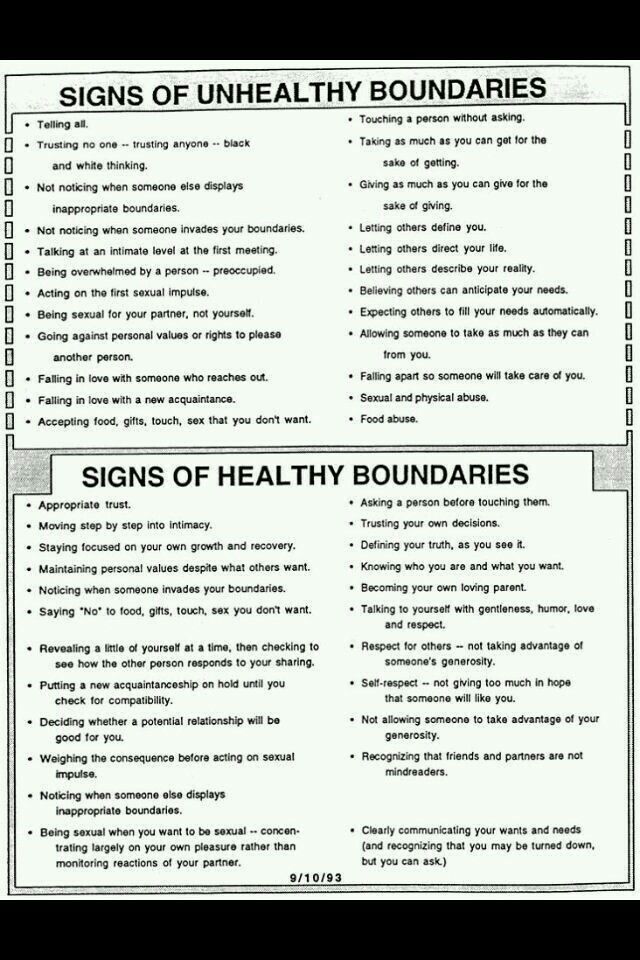 A person who has experienced violence may have lived in similar relationships as a child - for example, he was severely punished or ignored. He takes it as the norm. Or violence arises very gradually, is added in small portions. Then our consciousness manages to adapt to it, create protective mechanisms (for example, pity for the offender) - and also ceases to notice it. There is a third reason: immediately a very cruel attitude that causes serious injury. And the trauma is experienced by our consciousness due to repression: we seem to forget the episodes that traumatize us and therefore we cannot draw proper conclusions from them. nine0003
A person who has experienced violence may have lived in similar relationships as a child - for example, he was severely punished or ignored. He takes it as the norm. Or violence arises very gradually, is added in small portions. Then our consciousness manages to adapt to it, create protective mechanisms (for example, pity for the offender) - and also ceases to notice it. There is a third reason: immediately a very cruel attitude that causes serious injury. And the trauma is experienced by our consciousness due to repression: we seem to forget the episodes that traumatize us and therefore we cannot draw proper conclusions from them. nine0003
Psychological abuse is difficult to notice at an early stage
Therefore, if the relationship develops too quickly, if the partner constantly requires you to make some kind of sacrifice, if he is very jealous, scolds and blames former partners and friends, or talks about cases of cruelty and revenge against them, it is worth behaving carefully and giving yourself time.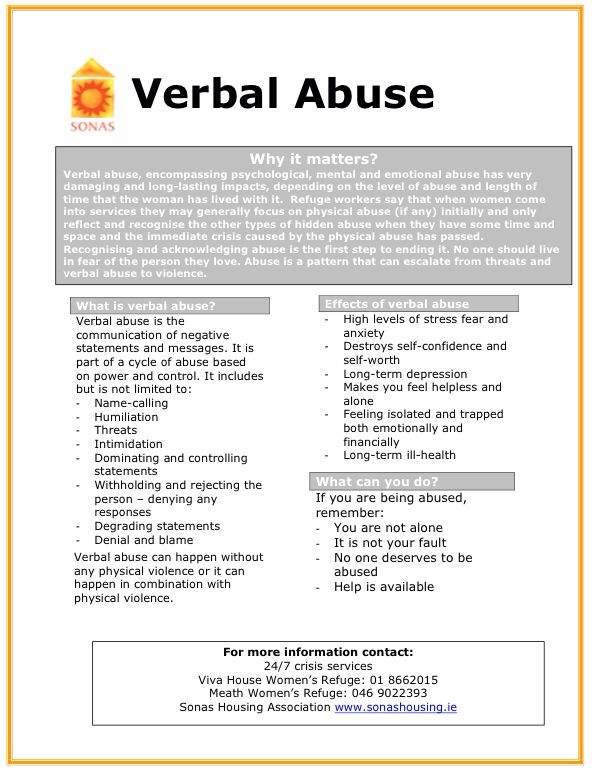 If you do not approach too quickly, it will gradually become clear who is in front of you and whether you can build a dialogue with such a person, find something in common and build respectful contact. nine0003
If you do not approach too quickly, it will gradually become clear who is in front of you and whether you can build a dialogue with such a person, find something in common and build respectful contact. nine0003
Emotional abuse is no less, and often more damaging to the individual than physical
Psychological abuse does not always lead to physical abuse, but it is no less destructive to the individual
Relationships in which psychological abuse is present are much more common than relationships in which there is physical violence, and the first does not always lead to the second. But emotional abuse is no less, and often more damaging to the individual, than physical abuse. It implies humiliation, devaluation, comparisons, blackmail and threats, pressure and control. When you live in such a relationship, you are forced to agree with what the one who uses emotional abuse inspires you, and gradually you begin to think that, indeed, “it’s all my fault”, “I really have problems with self-esteem, motivation , time management”, “I don’t dance well and I’m not smart enough”. Despite the fact that there are no bruises on the body, the human soul is wounded and crippled. nine0003
Despite the fact that there are no bruises on the body, the human soul is wounded and crippled. nine0003
Survivors of psychological abuse tend to underestimate the seriousness of what is happening
This is not a property of victims as some special type of personality, but a property of any human psyche: our consciousness does not want to be in a state of helplessness. This is the most unpleasant state for consciousness, as there is a loss of control when it is impossible to manage your life. Therefore, consciousness hides such traumatic experiences from us whenever possible. Therefore, to a person experiencing psychological abuse, it seems that nothing special has happened. nine0003
A person experiencing violence often cannot understand that it is time to seek help
It is usually those who are in a particularly difficult situation who tend to deny the need for help. It always seems to such a person that there is someone who needs more, and the situation is not too critical, maybe this time everything will work out. To really assess the danger, you need to understand whether there is a threat to life and health. If at least once there was physical violence, if scandals and threats are repeated and growing, if the offender uses drugs or alcohol, then the danger is very great. You should not wait for the next episode, you need to leave as soon as possible. Because you are around, the situation will not improve and the abuser will not improve, and you and your children will receive psychological trauma. nine0003
It always seems to such a person that there is someone who needs more, and the situation is not too critical, maybe this time everything will work out. To really assess the danger, you need to understand whether there is a threat to life and health. If at least once there was physical violence, if scandals and threats are repeated and growing, if the offender uses drugs or alcohol, then the danger is very great. You should not wait for the next episode, you need to leave as soon as possible. Because you are around, the situation will not improve and the abuser will not improve, and you and your children will receive psychological trauma. nine0003
Alcohol cannot be the only cause of aggression towards a partner. Alcohol and drugs, of course, aggravate abuse - control over emotions is destroyed, and a person can no longer control his reactions. But even after quitting drinking, a person may not stop being an aggressor. It is certainly worth treating alcoholism, but this does not mean that it is worth continuing the relationship with the one who is being treated and forgetting about yourself for this.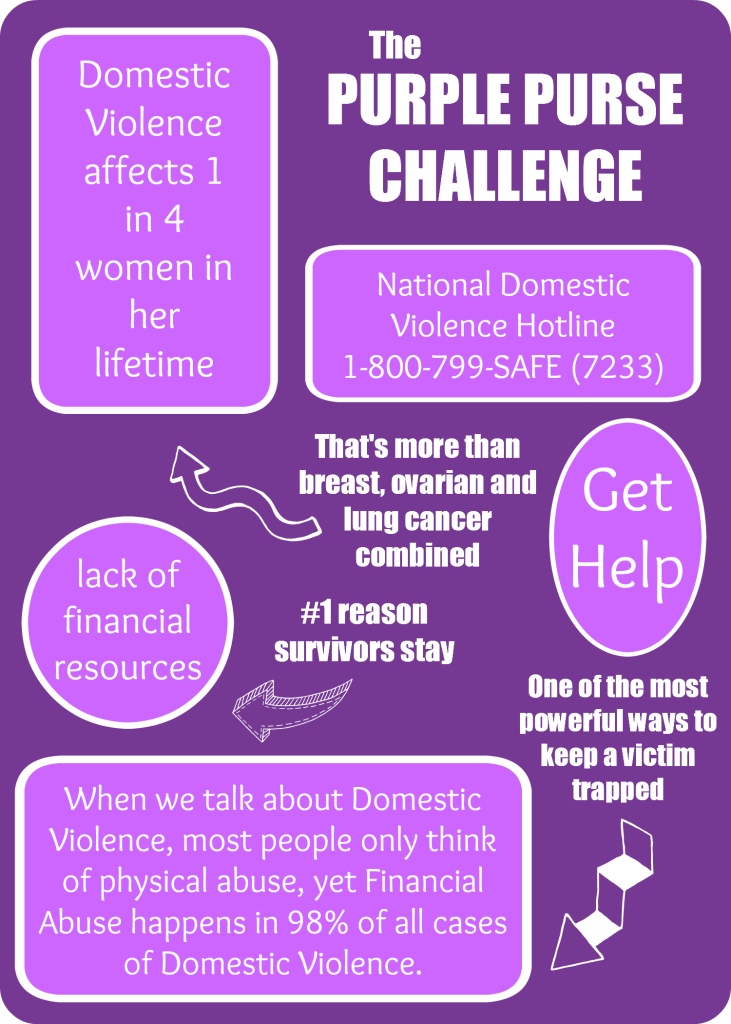 It is advisable to leave your needs in the first place. nine0003
It is advisable to leave your needs in the first place. nine0003 If only the injured party wants changes and seeks to “heal the relationship with his love”, then the matter is doomed to failure
Psychological abuse can be stopped, but both partners should want it only the victim, but also the one who uses violence. Or if there are two aggressors in a pair, which is also very common. Then they should work in parallel with a psychologist dealing with the trauma of violence, and an EFT therapist (EFT - emotionally focused therapy. - Forbes Woman ), which will help restore trust in a couple and improve communication between partners.
But if only the injured party wants changes and seeks to “heal the relationship with their love”, then the matter is doomed to failure. Because the more love is invested and the more forgiveness and humility the injured partner demonstrates, the more the abuser can afford and the more he will think that his behavior has no negative consequences.
Because the more love is invested and the more forgiveness and humility the injured partner demonstrates, the more the abuser can afford and the more he will think that his behavior has no negative consequences.
It will not be possible to change the offender
All efforts aimed at achieving this are in vain. You also need to realize that while you live in such a relationship, you not only receive damage yourself, but also do not allow the aggressor to change, because you serve as a resource that allows him to behave this way. It is not necessary to diagnose yourself and another like “I am a victim” or “he is an abuser”: this does not always change the situation. What is needed is a workable escape plan, support from outside, and recognition of the impossibility of changing anything in this relationship. nine0003
The one who produces violence often feels like a victim
He sees a threat in a partner, for example, he is afraid that he will leave him or will humiliate him - and therefore he attacks first.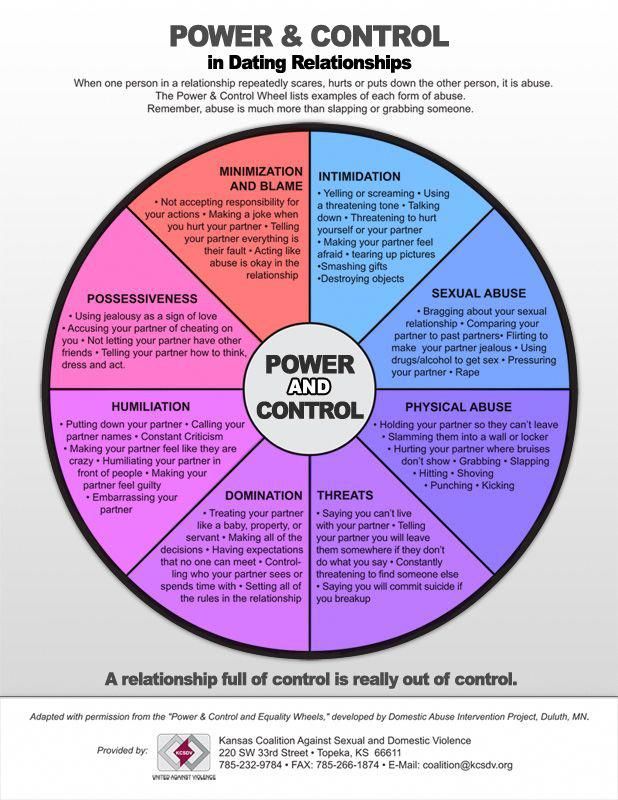 At the same time, he thinks he is defending himself. This is a perceptual error. Probably, in the past - mostly in childhood - a person had enough episodes when he was really a victim, and now he projects this experience onto reality.
At the same time, he thinks he is defending himself. This is a perceptual error. Probably, in the past - mostly in childhood - a person had enough episodes when he was really a victim, and now he projects this experience onto reality.
Related material
Psychological violence can occur not only in partnerships, but also in working relationships
Almost everyone, in some cases, uses elements of psychological violence and experiences it himself. We know how to defend ourselves against it, and it does not become something categorically harmful and bad for us, if it does not turn out to be a constant factor in relationships.
For example, a boss might ask for overtime work, implying that non-hard-working employees do not work for the company.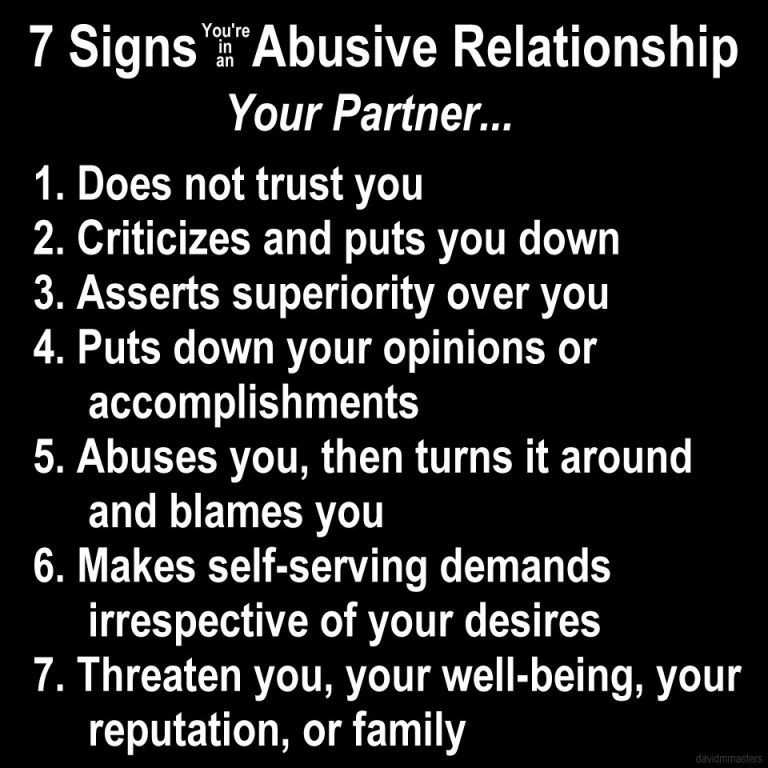 Here, a person may have a choice: to comply with the requirement or to defend the right to rest and subsequently, possibly, face a deterioration in attitude. If at least theoretically a person has the opportunity to change jobs, for him this choice is not so critical, he can say “no” in this situation. But if it is difficult with work or in a previous experience (for example, in childhood) a person did not have the opportunity to refuse, since this was followed by punishment, the person loses this choice. He is forced to agree, and if such manipulations continue, he may become a victim of violence. nine0003
Here, a person may have a choice: to comply with the requirement or to defend the right to rest and subsequently, possibly, face a deterioration in attitude. If at least theoretically a person has the opportunity to change jobs, for him this choice is not so critical, he can say “no” in this situation. But if it is difficult with work or in a previous experience (for example, in childhood) a person did not have the opportunity to refuse, since this was followed by punishment, the person loses this choice. He is forced to agree, and if such manipulations continue, he may become a victim of violence. nine0003
This state can be noticed by the feeling of hopelessness, anxiety and fear arising in contact with a person or people who violate the boundaries; by feelings of shame and guilt; internal monologues in their defense. Such relationships destroy self-esteem and eventually lead to burnout.
Recognizing a victim of psychological abuse can be difficult, but if you know about such a person, tell him about the organizations that help. Often they devalue the danger and harm that such a relationship causes them. Therefore, even if we see that a person does not resist when he is treated badly, we should not think that he likes it or is fine with it. nine0003
Often they devalue the danger and harm that such a relationship causes them. Therefore, even if we see that a person does not resist when he is treated badly, we should not think that he likes it or is fine with it. nine0003
Professional help is needed to deal with this. Therefore, it is important not to blame the victim and not to insist on immediate changes. But it’s definitely worth telling the person that there are free services where you can talk about your situation and better understand it. For example, the oldest center "Anna" (recognized as a "foreign agent") has an excellent help map on the site.
Victims of psychological and financial violence are entitled to help from organizations dealing with the problem of domestic violence, but obtaining asylum in Russia is not always easy
Recently, many public organizations have appeared in Russia that provide assistance to victims of psychological and other types of non-physical violence.
